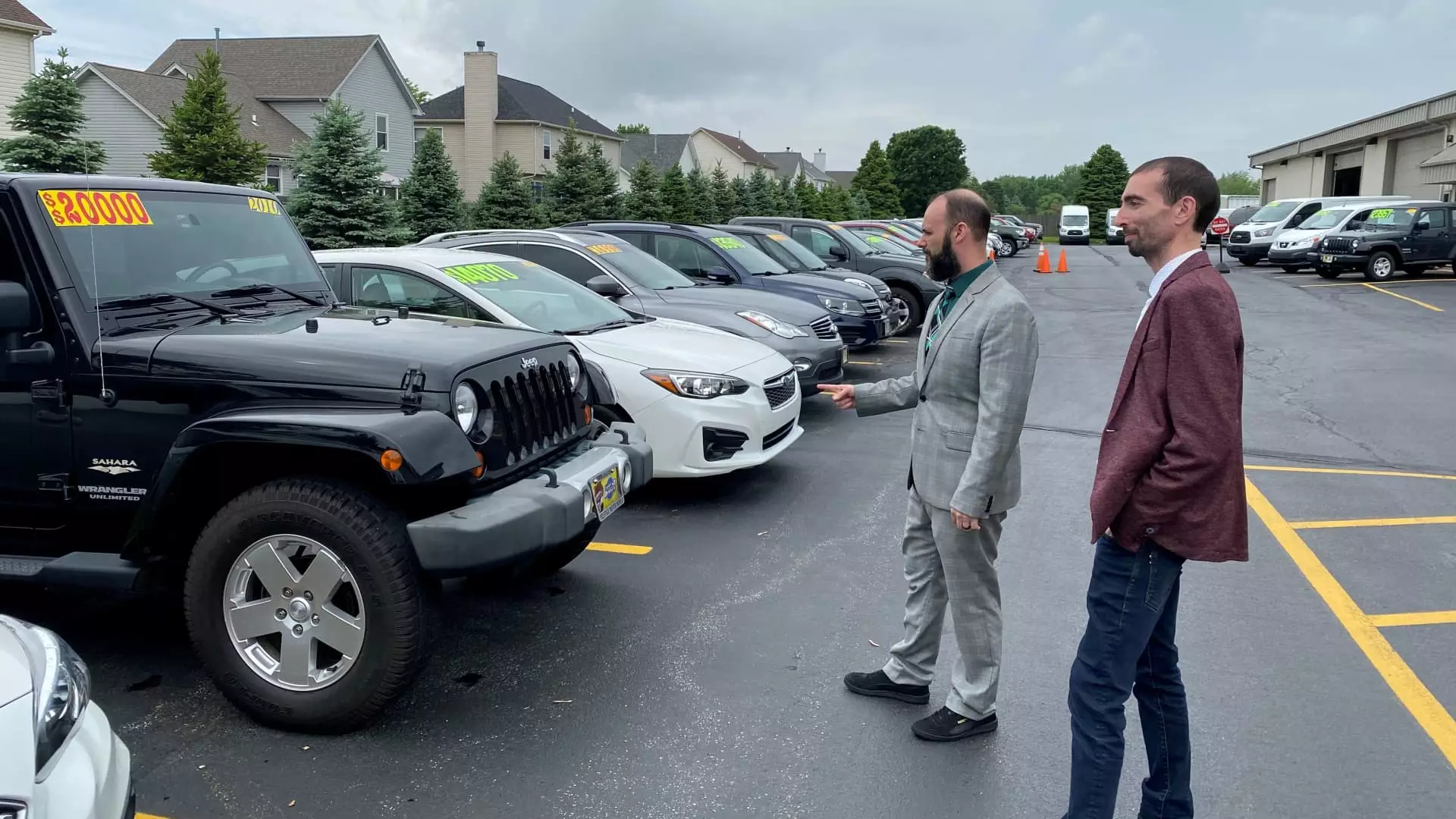As 2025 approaches, the sentiment among U.S. car dealers is one that oscillates between cautious optimism and underlying anxiety, particularly regarding the future of electric vehicle (EV) sales. A recent report from Cox Automotive reveals a significant increase in dealer confidence due to favorable economic factors and political changes, notably the election of President Donald Trump. However, despite this fresh wave of optimism, concerns remain palpable about the trajectory of the EV market amidst impending policy shifts.
The quarterly sentiment index, which aggregates responses from dealerships across the nation, indicates a jump in confidence—rising from 42 to 54. This numerical increase reflects a growing belief in a more robust auto retail environment over the coming months. Such sentiments are bolstered by the perception that political uncertainties post-election have begun to abate, providing a clearer pathway for strategic planning and business operations.
However, this optimism is not uniformly distributed across all vehicle categories, especially concerning electric vehicles. The report indicates that many dealers fear that upcoming policies from the Trump administration may not favor EV sales. Predicted reductions in federal incentives, such as the widely beneficial consumer tax credit for EV buyers, coupled with relaxed fuel economy regulations, have raised alarms among stakeholders in the EV market. Cox’s Chief Economist, Jonathan Smoke, articulated these fears, noting that tax incentives have become a critical driver for both new and used electric vehicle markets. A reversal or reduction of these credits could significantly dampen consumer purchasing power and reduce dealer enthusiasm for EVs.
Moreover, the sentiment index surrounding EV sales prospects has slipped among dealers, with a majority anticipating a decline in sales in the upcoming quarter. This downturn in optimism, stemming from the uncertain regulatory environment, poses a challenging landscape for dealers, particularly as they navigate the growing public demand for sustainability in transportation options.
Despite the mixed feelings surrounding electric vehicles, another facet of the automotive landscape remains promising. The overall market for new and used vehicles has proven robust, intricately linked to rising vehicle prices. As demonstrated by the performance of major publicly traded auto dealerships—such as AutoNation, Lithia Motors, and Sonic Automotive—stock prices have shown considerable growth, even ranging between 15% to 22%. This reflects not just consumer demand but also the strategic adaptations of these dealerships in response to shifting market dynamics.
The notable performance of Group 1 Automotive, which has surged by approximately 40% in 2024, underscores the resilience and resourcefulness of dealerships amidst volatile circumstances. This financial success is partly fueled by strong margins and effective inventory management tactics that prioritize high-demand vehicles.
The Role of Federal Policies and Economic Influences
Economic indicators, including interest rates and possible tax rebates from the government, weigh heavily on dealer sentiment moving into 2025. The resolution of political uncertainty and anticipated supportive measures could very well steer consumer confidence and buying behavior in favorable directions. With 35% of dealers acknowledging the impact of the political climate on their operations—a decrease from previous quarters—there’s hope that a more stable political backdrop will stabilize and positively influence market conditions.
Moreover, the historical metrics suggest that while the automotive industry has rebounded somewhat from the disruptions of the pandemic, current indices remain below long-term averages, highlighting an ongoing need for cautious optimism. As dealers prepare for the upcoming year, the duality of positivity for traditional vehicle sales paired with apprehension for electric vehicle acceptance creates a complex environment requiring astute navigation.
Moving forward, it is crucial for dealers to embrace flexibility and readiness to adapt to incoming policy changes and market realities. Efforts to engage with consumers through targeted marketing strategies that promote the value of both traditional and electric vehicles can empower dealerships to sustain sales momentum. By understanding market trends and consumer preferences, dealers can better position themselves to capitalize on the evolving automotive landscape.
While the sentiment among U.S. car dealers has improved, especially with a potential influx of favorable economic conditions, the future of electric vehicles remains a significant concern. The challenges posed by shifting federal policies and consumer behavior make it essential for dealers to strategize effectively as they navigate the landscape of the evolving auto marketplace in 2025 and beyond.

Leave a Reply